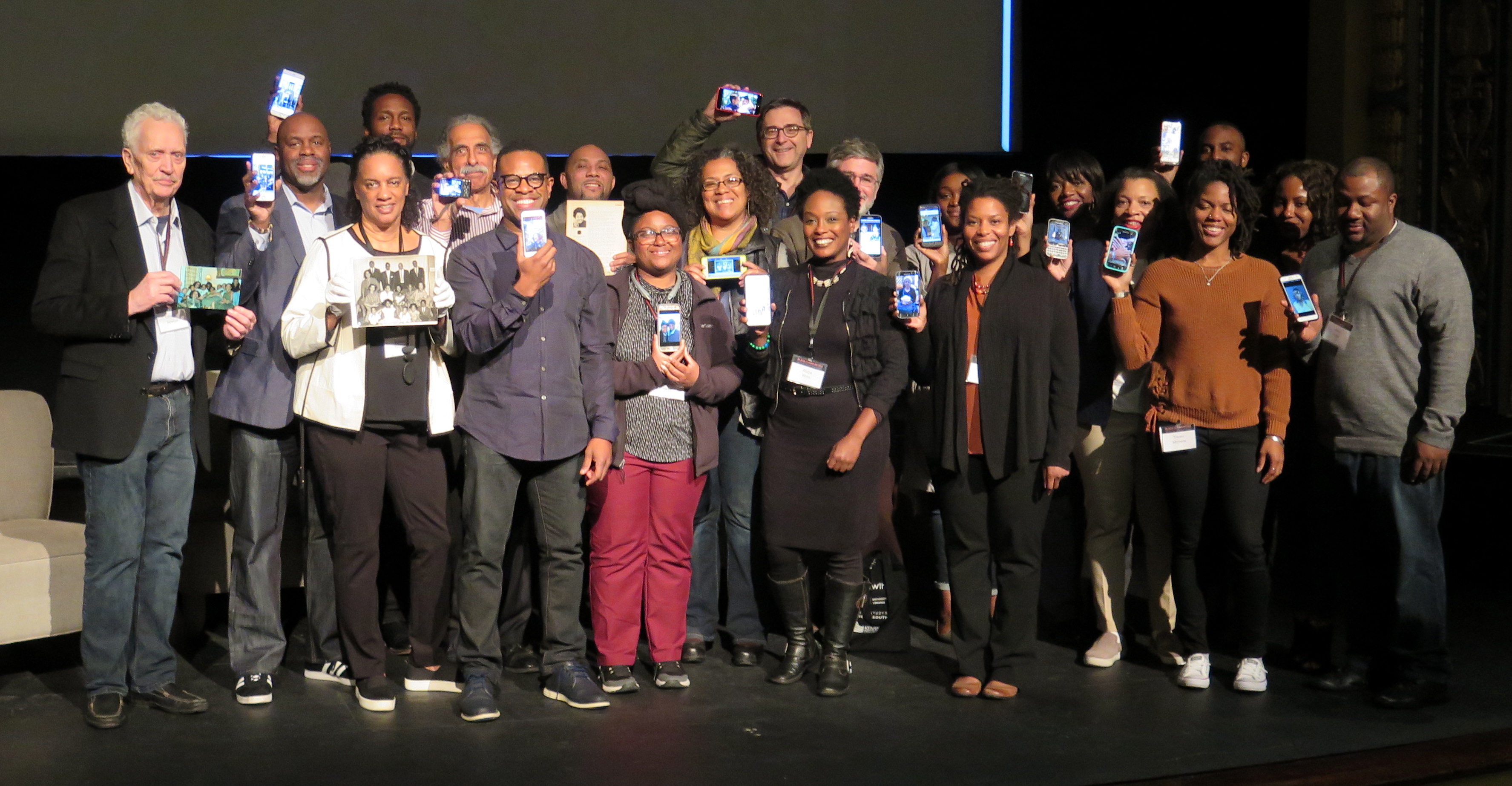
On behalf of the Academy, I want to express my gratitude to both (Thomas and Don) for bringing the “Digital Diaspora Family Reunion” to the Academy’s Linwood Dun Theater in September as part of the International Documentary Association’s Getting Real ’16 Conference. The event was a tremendous success and it was incredibly special to have the you share your project with a Los Angeles enthusiastic audience. It was the perfect opening the conference.
— Randy Haberkamp, Managing Director, Preservation and Foundation Program, AMPAS
I hope this project inspires all, its inspired me to call up my relatives, the young folk who are doing the family tree, to know the people who took the photographs.
— Clarence Page, Journalist
I want to thank you so much for being so nice to me, so positive in your response to my family stories and for including my family’s narrative in your show. I had rarely shared my family story or photos with anyone! Since, my participation in your production, I became ‘famous’ at least for a day!-because of the promo on NT1 and article in the Daily News. How sweet that was! You may know, YOU started a revolution!!!!!You created a new way for so many people to open dialogues long overdue-family member to family member; friend to friend, new friends to new friends. I hope that you continue to keep the Digital Family Reunion going. If I can help you in any way, please feel free to call me at any time. Until then, Best wishes to you and everyone associated with the production. You are all the most terrific and wonderful, talented people in the world!!!
— Sylvia Isabel
I can’t begin to tell you how moving yesterday was for me. There’s something about photos and the stories they evoke that can make one feel so connected to this world, especially in moments when we feel like outsiders, nomads, looking for a place of belonging. So, thank you my dear for doing this in Harlem and more importantly, FOR Harlem. This community (like so many others) deserved to be validated in so many ways, you are a part of that blessing. And thank you for letting me share my Guyana story.
— Grace Ali, Artist, Curator and publisher Of Note Magazine
I wanted to take a moment and thank you and your fantastic team for welcoming me last night and making me feel comfortable for the taping of “Digital Diaspora Family Reunion.” I had such a good time talking about my family and learning about my family through your eyes. Last night, as I walked home, I realize that you have, perhaps unknowingly, started “A Movement.” A Movement for our People. You have opened a portal for us to share the road map to our ancestors and to our culture. This Movement that you have started, will spread way beyond the confines of our imagination. And I know it will berth and live for many generations to come.
— Cheryl Minor
I attended the DDFR Roadshow in Richmond CA and saw how three different story/picture-tellers (a Dutchman whose father was in Japanese-occupied Indonesia during WWII, a Honduran, and a Japanese-American) all told about family members being in internment camps — and how we all left feeling that we all had more in common than different.
— Paul Connolly
DDFR Participants and Audience Members have shared:
“I didn’t know I needed it until I found it.”
“DDFR changes you. It makes you care more.”
“(DDFR focuses on) the kind of people, the kind of families that are largely invisible in our culture, and how family photographs can counter that invisibility. That to me is the most powerful thing about this project.”
“The images are of families, they speak to the love and strength within the families.”
“(DDFR) is a trigger to make you think.”
“It’s the ultimate team-building experience.”
“It’s making the world a better place.”
“A light goes off in your head. I can do this. I have potential. It’s a pivotal experience for a young person… a way to link the past, present, and future.”
“We are a culture made up of many different cultures. Information about each other is not easily shared and it’s not always acceptable and so there’s a lot of ignorance about how other cultures live their lives, what they have given to our society. And when I say neighbors, it’s the people that live right next to me or down the block from me that might be Jewish or they’re Irish, or they’re Jamaican. (DDFR) helps to connect us as neighbors.”